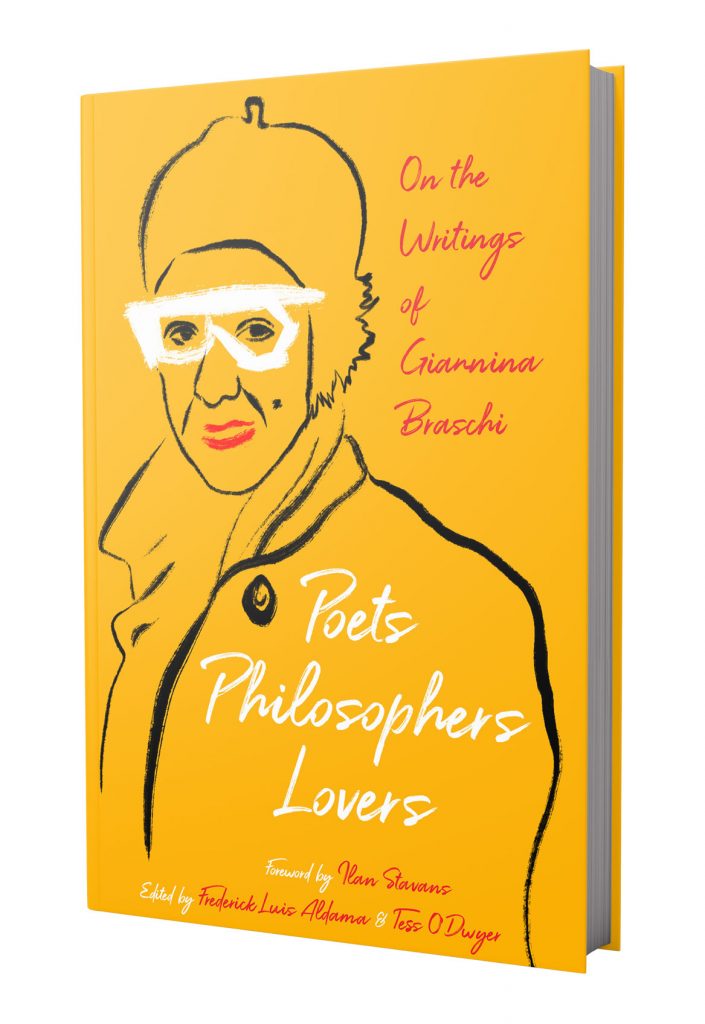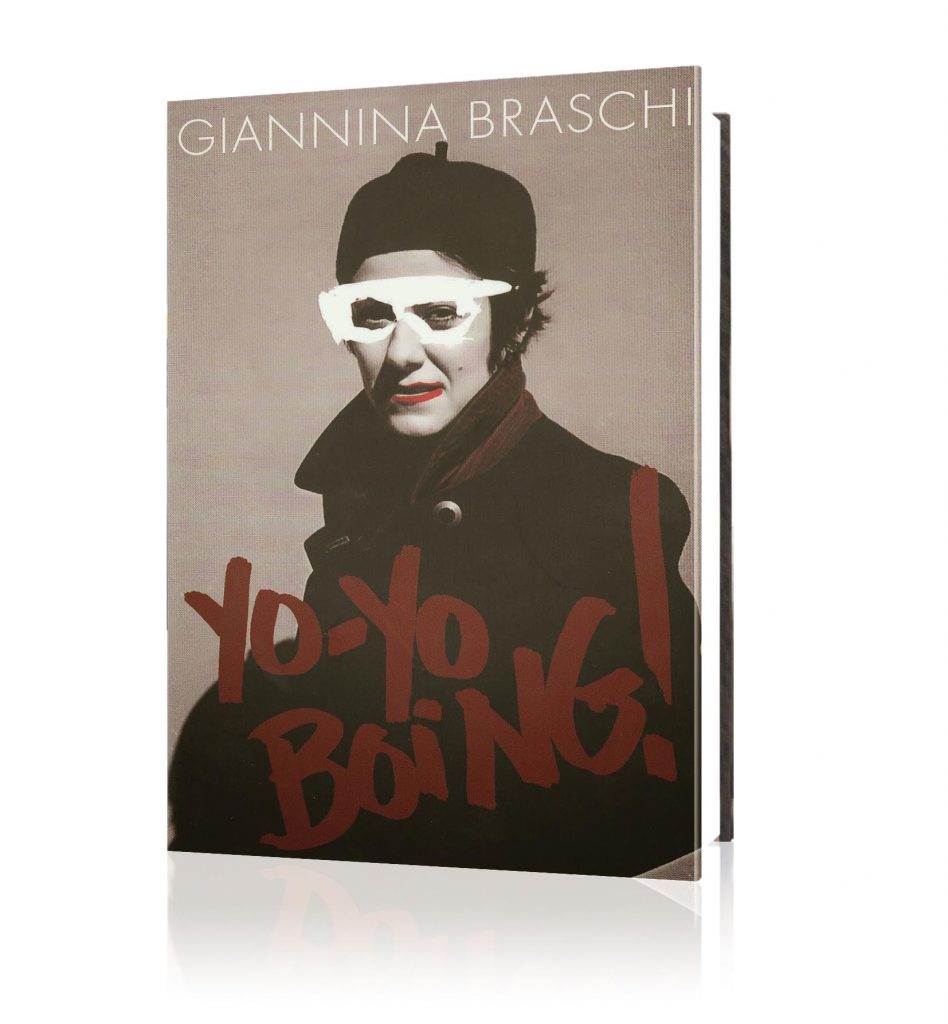Nuyorican Poetry and Philosophy.

Poets, Philosophers, Lovers: On the Writings of Giannina Braschi edited by Frederick Luis Aldama and Tess O’Dwyer with a foreword by Ilan Stavans
Book review by Thomas Rothe
Arizona Journal of Hispanic Cultural Studies, Vol. 25, 2021
Puerto Rican, Nuyorican, Latin American, Latinx, immigrant, poet, novelist, playwright, and artist, Giannina Braschi defies any attempt at classification. With her iconoclastic work circulating since the 1980s, Braschi has contributed significantly to the development of literature written by Latin American immigrants in the U.S., cultivating linguistic, aesthetic, and ethical strategies to confront living between two cultures and two countries, one of which holds firm political control over the other.
Nuyorican Poetry and Philosophy Today

The recent volume Poets, Philosophers, Lovers. On the Writings of Giannina Braschi, edited by Frederick Luis Aldama and Tess O’Dwyer, has come to fill a major gap in the critical bibliography on Braschi’s work and life. Both editors are well prepared for such a task: as a scholar, Aldama has published and edited dozens of studies on Chicanx and Latinx cultural production, and O’Dwyer is the translator of Braschi’s books originally written in Spanish or Spanglish—Imperio de los sueños [Empire of Dreams] (1988) and Yo-Yo Boing! (1998).
Braschi’s work emerged from the heart of the Nuryorican movement, along with poets like Pedro Pietri, Nancy Mercado, and Edwin Torres, but it also belongs to the Puerto Rican literary field that moves back and forth between the island and the U.S., inevitably related to contemporary authors such as Urayoán Noel, Nicole Delgado Sánchez, Ana Lydia Vega, and now canonical poets such as Julia de Burgos, and even—to some extent—Luis Palés Matos.

From the heart of the Nuryorican movement
One central figure of Puerto Rican insular culture who appears in Braschi’s work is Nilita Vientós Gastón, to whom she dedicates United States of Banana, her latest novel published in 2011. A professional lawyer and renowned intellectual, Vientós is not only known for her successful participation in the “Pleito de la Lengua,” a lawsuit which established the exclusive use of Spanish in Puerto Rican courts, but also as the director of Asomante and Sin Nombre, influential literary magazines that together maintained a quarterly circulation from the 1940s through the 1980s. Braschi’s nod to Vientós cannot be overlooked as a relevant gesture to reclaim and construct a genealogy of Puerto Rican women intellectuals.

Beyond the shores of Borinquen, Braschi emanates from a profoundly Caribbean cultural universe. We find similarities between her writing and the Afro-Caribbean trickster Anansi, half-spider, half-man, whose oral stories offer lessons that often test hegemonic morals. We also see affinities in Jamaican poet Louise Bennett’s “Colonization in Reverse,” which upends power relations established by British colonialism.
Similarly, the poetics of voice that Braschi articulates is comparable to poet and historian Kamau Brathwaite’s attempt to meld writing with popular speech. On the other hand, as Aldama points out in his introduction to the volume, we must place Braschi’s work alongside African American women writers like Audre Lorde and Claudia Rankine, both of Caribbean origin. Unquestionably, Braschi’s work is carnavalesque, a quality which, through style and particular topics, connects her to Caribbean literary traditions…”
(Click here to continue reading).
This blog post features an excerpt of an essay by Thomas Roth. To read the full review on Nuyorican Poetry and Philosophy by Giannina Braschi and her contemporaries, click to Arizona Journal of Hispanic Cultural Studies, vol. 25, 2021, p. 300-303. To learn more about Nuyorican Poetry and Philosophy in general, visit El Centro’s library at The Center for Puerto Rican Studies.
